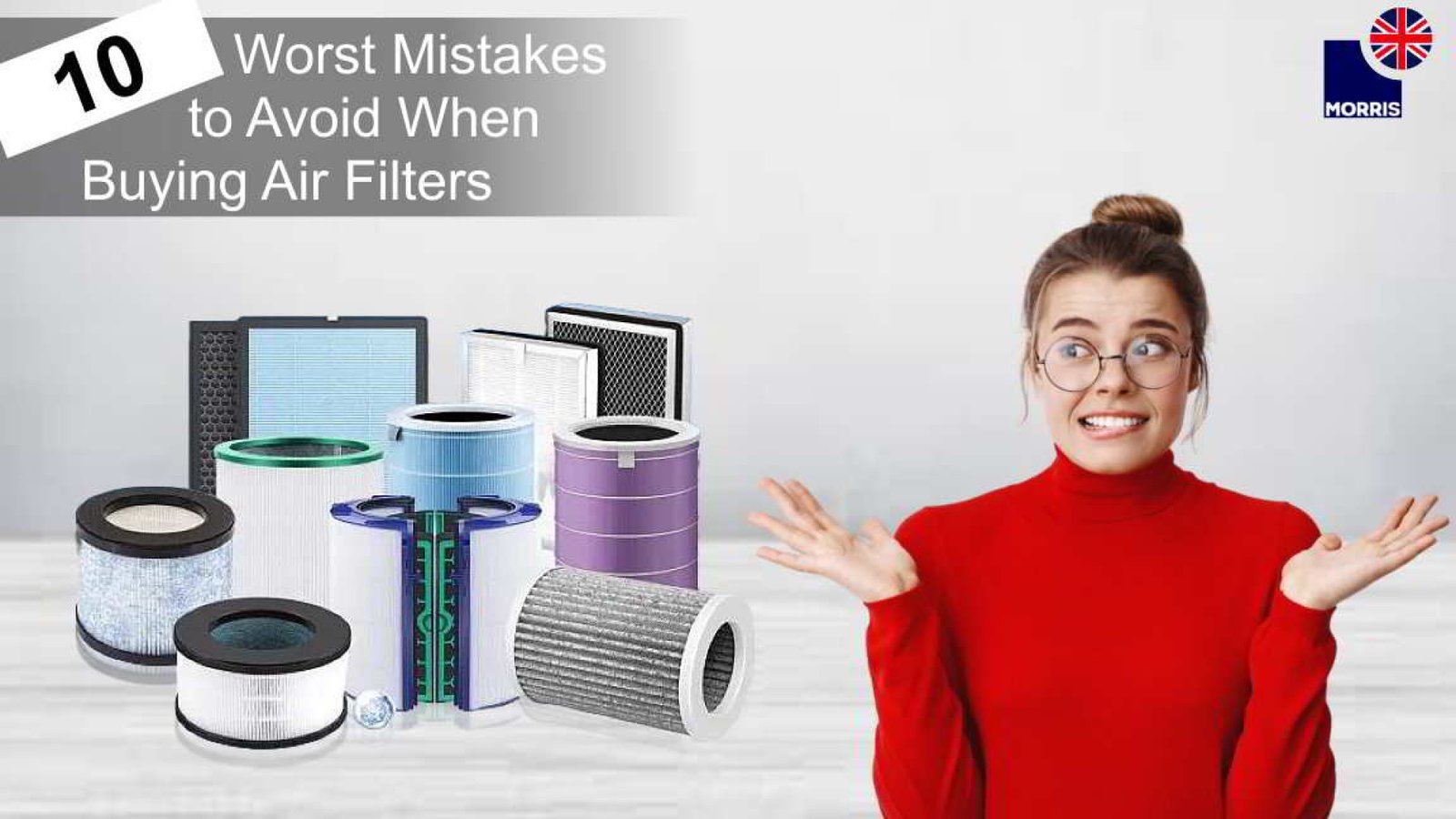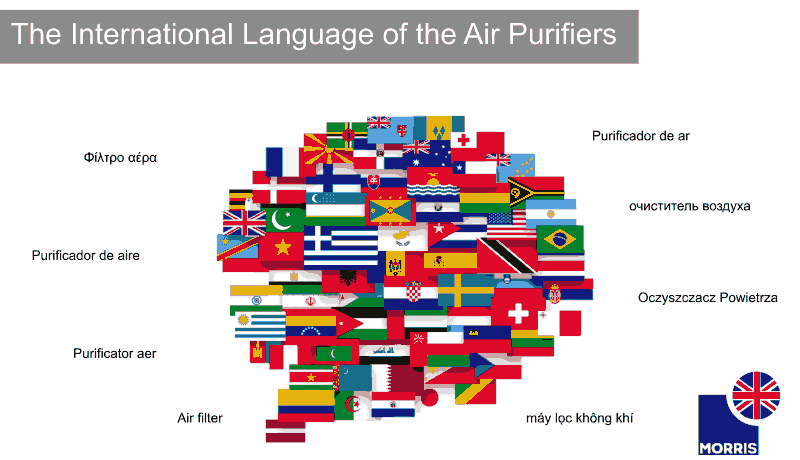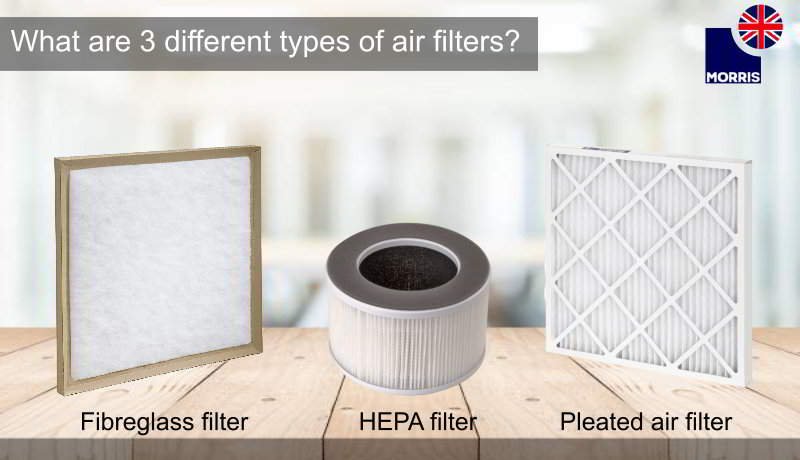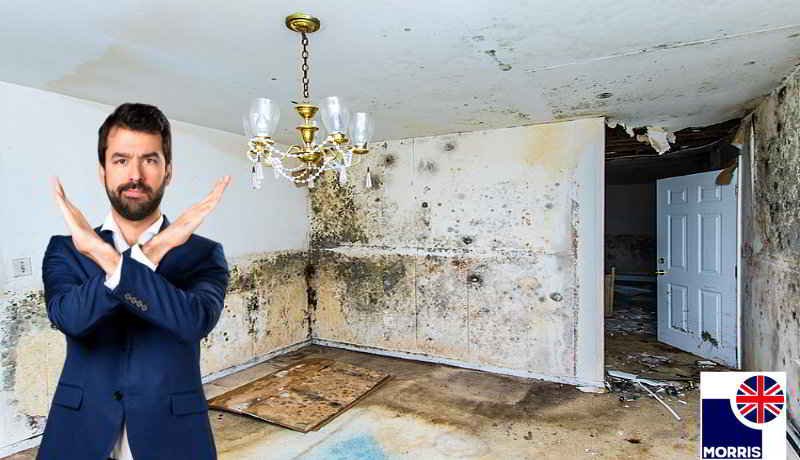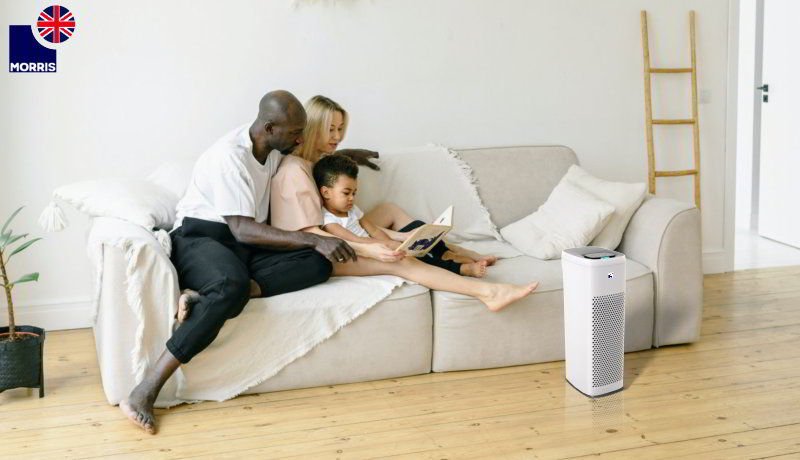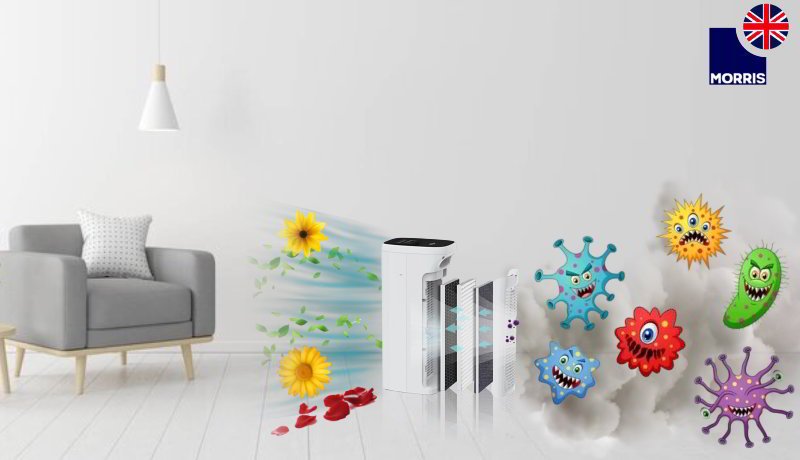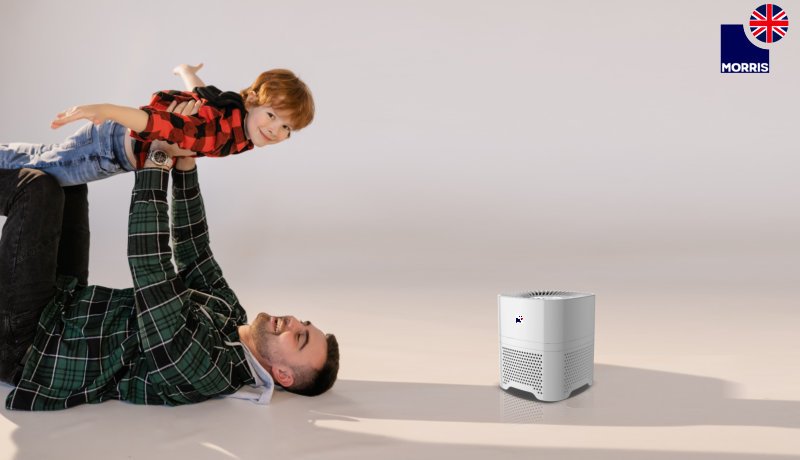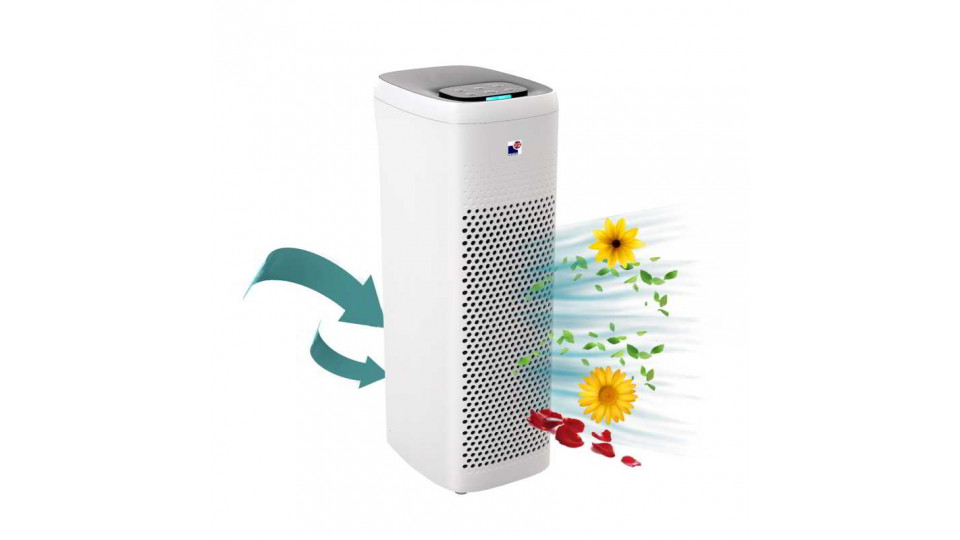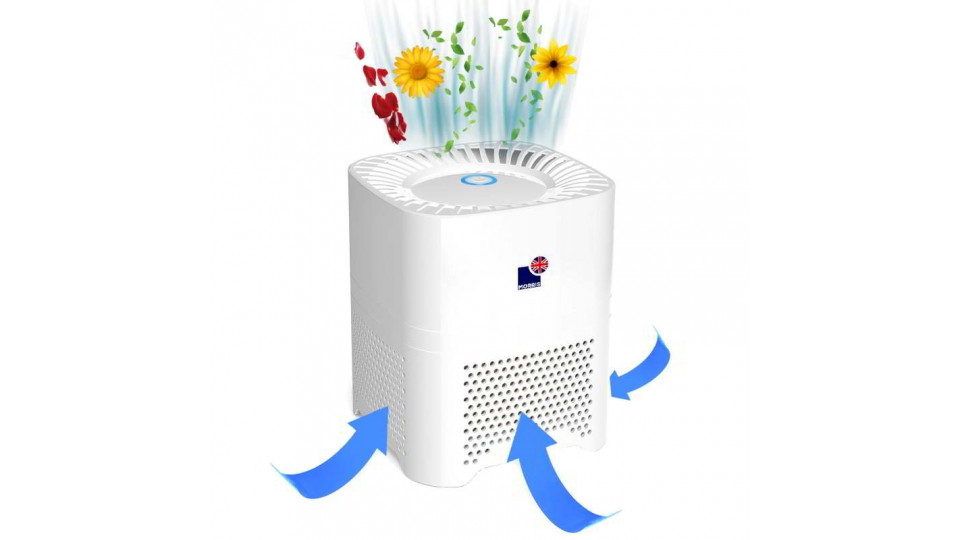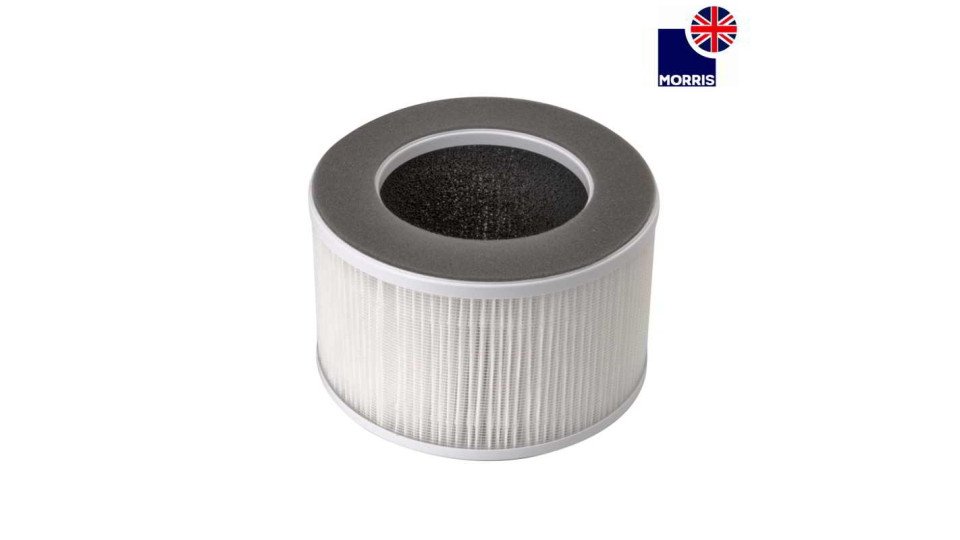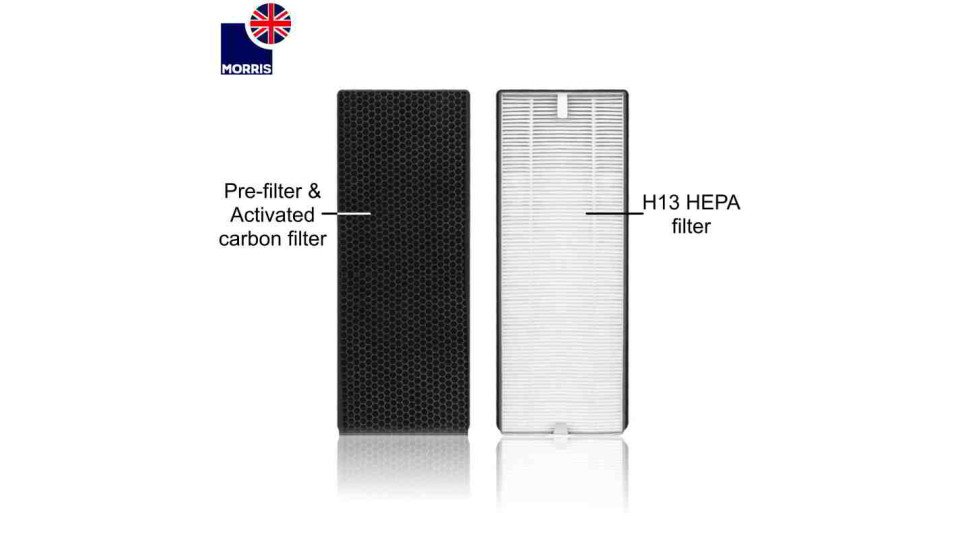Air filters are important for maintaining good indoor air quality and promoting overall health and well-being in our homes. An air filter for home removes airborne pollutants like dust, pollen, mould, mildew, and other allergens from the air, ensuring the air you breathe is safer and healthier. Yet, you can only reap all these benefits if you choose the right air filter for your air purifier.
Air filters come in all shapes and forms. They are built from different materials and have a unique ergonomic design to improve their air filtration efficiency. Some advanced air filters were initially used in hospitals and research labs, where indoor air quality is important, before they found their way into residential home appliances.
The International Language of Air Purifiers
Ever wondered what an air filter or air purifier is called in other languages? Interestingly, air purifiers have grown so popular in the UK that homeowners are searching for the brand in different languages. Whether you are Portuguese, Polish, Greek, Romanian, or Thai, here is what an air purifier is called in your language:
Language | |
Greek | Φίλτρο αέρα (Air Filter) |
Polish | Oczyszczacz Powietrza (Air Filter) |
Polish | Jonizator Powietrza (Air Ioniser) |
Polish | pochłaniacz kurzu (Dust collector) |
Polish | oczyszczacz powietrza z jonizatorem (Air purifier with ioniser) |
Portuguese | Purificador de ar (Air purifier) |
Romanian | Purificator aer (Air Purifier) |
Russian | очиститель воздуха (Air purifier) |
Spanish | Purificador de aire (Air purifier) |
Thai | เครื่องฟอกอากาศ (Air purifier) |
Vietnamese | máy lọc không khí (Air purifier) |
What are 3 different types of air filters?
Fibreglass filters
Fibreglass air filters are made from layers of fine fibreglass fibres bonded together to form an air-filtering media. The air filter is then encased in a metal or cardboard frame. This straightforward assembly makes it easy to install the air filter in air purifiers and HVAC systems.
Fibreglass air filters capture and remove pollutants from there using electrostatic energy. The fibreglass surface is electrostatically charged, which attracts particulate matter like pollen, dust, pet dander, and other airborne pollutants onto it. Through this process, impurities are removed from the air, improving indoor air quality.
Fibreglass air filters are usually a low-cost and disposable option for air filters. They are easy to replace and are widely used in both residential and commercial use. The only drawback of fibreglass filters is they are not as effective at capturing smaller particulate matter when compared to other air filter options.
Pleated air filters
A pleated air filter is designed using pliable material such as cotton, polyester, or cotton arranged in folds and enclosed in a cardboard frame. These folds or pleats increase the surface area of the air filter, allowing it to filter out more airborne pollutants.
Similarly, pleated air filters can capture large airborne pollutants like mould spores, dust, pollen, and bacteria. These pleated air filters are available at varying efficiency levels, with the highest-rated filters being more efficient. In addition, pleated air filters are far more capable of capturing smaller particulate matter compared to fibreglass filters.
HEPA filters
HEPA air filters are superior to pleated and fibreglass filters. A HEPA filter is an advanced filter that can filter particulate matter that is at least 0.3 microns in size (a human hair is 100 microns) with an efficiency of up to 99.97%. HEPA filters are the best for removing all sorts of air pollutants, from large particles like dust and pollen to tinier pollutants like bacteria and viruses.
A HEPA filter comprises a dense layer of mesh that traps any particle that tries to get through it. HEPA filters are the most common type of filter used in air purifiers, but they also find application in vacuum cleaners and HVAC units.
Which is best air filter to buy?
Air filters are essential in ensuring the air we breathe is clean and free from harmful particles such as dust, pollen, and allergens. However, getting the right air filters for home air purifiers can be confusing for a first-time buyer. To ensure you make the right decision when window shopping for air purifier filters, here are the ten worst mistakes to avoid when buying air filters:
1. Choosing the wrong filter size
Getting the size of the air filter right is crucial in ensuring its effectiveness when installed in an air purifier. Always measure the dimensions of the air filter slot in your air purifier to ensure you get the right air filter for it. Fortunately, most air purifier brands in the UK do sell replacement air filters for their products. It pays to get a few extra filters with your first air purifier purchase to ensure you are prepared for the next filter replacement.
2. Overlooking the MERV rating
The Minimum Efficiency Reporting Value, or MERV, refers to the air filter's ability to remove particulate matter, 0.3 to 10 microns in size, from the air. Air filters with a high MERV rating are more efficient in filtering out air pollutants. If you are dealing with a lot of indoor air pollution, going for a higher MERV air filter is better. However, note that high-efficiency air filters have a shorter lifespan compared to filters with a low MERV rating.
3. Choosing the wrong type of filter
There are various types of air filters, including ioniser filters, activated carbon filters, HEPA filters, and so on. Each of these filters has specific features and suits different applications. So, choosing the right one for your needs is crucial.
● Ioniser air filters release negative ions in the air that clamp onto airborne particles. These are usually tiny particles that float in the air and are invisible to the eye. Ioniser filters may not be that great for large particle pollutants.
● Activated carbon filters are good for eliminating smoke and unpleasant odours. Such filters are also ideal for removing volatile organic compounds from the air. Similarly, this type of filter may not be efficient at filtering out large particles in the air.
● HEPA filters are the industry standard because they purify air from all types of impurities. Medical-grade air purifiers are handy when removing both tiny particles (up to 0.3 microns) and large particles (up to 100 microns).
4. Dismissing the airflow rating
The airflow rate refers to how quickly air flows in and out of an air purifier and is measured in cubic feet per minute, or CFM. The higher the CFM rating, the higher the air flow capability of an air purifier. If you are in a room that needs frequent air purification, you will need an air purifier with a higher CFM. Also, the airflow rating determines the amount of air a filter can handle. Choosing a filter with a low airflow rating can lead to reduced efficiency and increased wear and tear on your HVAC system.
5. Ignoring air filter lifespan
All air filters have a shelf life. How long an air filter lasts depends on usage and room conditions. An air filter that works in a humid environment would work better than one in dry conditions. Ignoring the air filter can reduce the efficiency of your air purifier, and possibly increase replacement costs.
Most air filters have a lifespan of 12 months if used for about 4 hours a day. Fortunately, most modern air purifiers have an inbuilt filter replacement indicator that will alert you when the air filter has expired.
6. Not replacing air filters regularly
Not replacing your air purifier’s filter will reduce its effectiveness. As mentioned before, ignoring the warning light to change the filter can cost you in terms of poor indoor air quality and increased energy consumption.
7. Not properly maintaining air filter
Some air filters for air purifiers at home need more maintenance than others, such as cleaning or washing. Improper care of an air filter, thus not understanding its maintenance requirements, can lead to reduced efficiency and increased replacement costs.
8. Choosing cheap over quality
While air filter pricing is important, it should not be the only factor that determines if you buy a filter or not. Cheap is expensive, and choosing a cheaper filter can cost you more down the road in terms of filter replacements or air purifier repairs. Go for quality air filters that are air filters. Choosing a cheap filter may save you money in the short term, but it could lead to increased costs in the long term.
9. Not considering the environment
Environmental factors like high humidity and temperature can diminish the efficiency of air filters and, subsequently, their lifespan. You may have to use a dehumidifier and a portable fan in such conditions to reduce air purifier running costs and increase the longevity of the air filter.
10. Lack of prior research and professional advice
If you are unsure about which air filter to go for, seek the help of an air purifier expert to help you make an informed decision. HVAC professionals are knowledgeable about the various types of air purifiers and their respective air filters. Also, research the type of air purifier you own and the filters that are compatible with it.
Do air purifiers work for mould?
Yes, air purifiers do remove mould in any room, but they need to have the right type of air filter to do that. HEPA air purifiers are more effective when it comes to capturing mould spores present in the air. Mould spores are about 2 to 10 microns in size, making them tiny and light enough to remain airborne longer.
HEPA air filters have a 99.97% chance of capturing the broad spectrum of mould spores in the air, reducing the chances of allergies, respiratory problems, and infections. Besides causing health risks, mould infestation can also lead to structural damage to walls, floors, ceilings, and the overall structure of a building. A HEPA air filter for mould is a sure way to keep mould at bay, avoid health issues, and reduce costly home repairs.
Which air filter removes the most dust?
Between the fibreglass, pleated, and HEPA filters, the HEPA air filter removes the most dust from the air given its unique design and functionality. Household dust is a collection of many small particles that get airborne and ruin indoor air quality. This includes;
1. Dead skin cells
Humans shed millions of dead skin cells daily, and these dead skin cells make up a large portion of household dust.
2. Pet dander
Pet dander comprises dead skin cells, hair, and saliva from our pets that contribute to accumulated dust.
3. Fibres
Fibres from fabrics, upholstery, carpentry, and all other sorts of fibres in the home all contribute to household dust.
4. Pollen
Pollen from plants floats into our homes via open windows and settles on surfaces, adding to the dust present.
5. Dust mites
Dust mites are microscopic insects that thrive in household dust, feeding on dead skin cells.
6. Insect debris
Dead insects and insect excrement also add to household dust.
7. Mould spores
Mould thrives in damp areas of the home and releases spores in the air, which combine with household dust.
8. Bacteria and viruses
Bacteria and viruses are ever present in household dust and trigger illnesses when inhaled by humans and pets.
The best air purifier for household dust is one fitted with a HEPA air filter. This is because a HEPA filter has a dense meshy construction that can trap all sorts of airborne particles, even those that are 0.3 microns small. Moreover, most HEPA air purifiers now feature a complex filtration system that features a HEPA filter and other crucial filters like an activated carbon filter and an ioniser filter.
Although a HEPA filter is efficient in removing large and small airborne pollutants, it is not as effective in dealing with odour. This is where an air filter for smoke and other noxious gases comes in handy. The activated carbon filter eliminates cigarette smoke, weed smoke, kitchen smoke, and any other source of smoke in your home.
Also, a carbon filter is necessary if you want to get rid of volatile organic compounds, or VOCs, in your home. These are poisonous chemical fumes like formaldehyde and methyl tert-butyl that originate from paint thinners, petroleum products, hydraulic fluids, and cleaning products. VOCs are harmful gases that trigger respiratory problems and are carcinogenic (can cause cancer).
Does it matter what kind of air filter I use?
The type of filter you use will significantly impact the effectiveness of your air purifier.
Fiberglass
Although fibreglass filters are cheaper for removing large airborne particles, the same filter will struggle to capture smaller particles like mould spores and pet dander.
Plated
Pleated filters are available in different MERV ratings to denote their efficiency. A pleated filter with the highest MERV rating will be effective in capturing different-sized particles, but the same filter will not be efficient in removing smoke and unpleasant odours from the environment.
Carbon filter
Using a carbon filter alone will be effective in capturing smoke, unpleasant odours, and volatile organic compounds in a room. But you will still need to take care of household dust, and a carbon filter alone cannot help with that.
Medical grade HEPA filter
A medical-grade HEPA filter is the most efficient type of air filter. It has the highest MERV rating compared to other air filters and can capture even the tiniest particles. If you are dealing with a lot of indoor pollution, a HEPA air filter is what you should go for. Such a filter will also be handy when dealing with outdoor air pollution like wildfire smoke or the pungent weed smoke from your next-door neighbour.
Do air purifiers use a lot of electricity?
How much electricity an air purifier uses will depend on a few things;
● Size of the unit
● Filter type
● Speed settings
Size of unit
Fortunately, most modern air purifiers do not use a lot of electricity. There are smaller HEPA air purifiers that only use 0.003 kwh.
Quality of filter
We mentioned three different filters earlier and each of these filters uses energy differently. While fibreglass and pleated filters are efficient in removing particulate matter, they only do so with a single filter. Such filters will take longer to deal with household dust that lingers in a room for hours, hence ending up using more energy to purify the air.
A HEPA air filter will help you save energy in the long run. It features a four-stage filtration system that comprises a pre-filter, a HEPA filter, a carbon filter, and an ioniser booster filter. These four filters, when combined, have a 99.97% efficiency in filtering out airborne particles and unpleasant odours and will take less time to do so.
Speed settings
Speed settings directly affect the flow rate of an air purifier. Highly efficient air purifiers will have two to three fan speeds to control how much air gets into the filters. If more air consistently passes through the filter, then the unit purifies indoor air faster.
Airflow is facilitated by the number of fan speeds in an air purifier. An air purifier with at least three fan speeds will have sufficient airflow. It will purify air faster, reducing air purifier running time.
How can you save energy with an air purifier?
Here are some more tips and measures you can take to further reduce air purifier running costs:
● Always choose an energy-efficient air purifier; check the Energy Star rating of the unit before buying it. Also, ensure the air purifier you buy is certified by the respective authorities, like the EPA, to be energy efficient.
● Use lower settings. Another trick to reduce air purifier costs is to use the lowest settings. Set the unit to run on low speed as opposed to high speed. The unit will still purify the air while conserving energy.
● Switch off the unit when not in use; leaving your air purifier running all day can attract high energy bills. Get a smart air purifier that allows you to set when the air purifier will be running—it could be an hour before you get home or a few hours before you wake up.
● Employ other energy-saving measures—fix any air leaks in your home and improve the ventilation in your home. Such small measures ensure your air purifier works less and helps you save energy long-term.
Do air purifiers actually make a difference?
Air purifiers make a huge difference in the indoor air quality of your home or building. They remove harmful airborne pollutants and allergens in the air which ensures the air you breathe is clean and fresh. The scientific research "Effects of the use of air purifier on indoor environment and respiratory system among healthy adults" has proven that an air purifier helps improve human health in everyday life by reducing the levels of air pollutants in the home. This includes pollutants such as household dust, pollen, mould, mildew, unpleasant odours, and volatile organic compounds (VOCs).
However, how effective an air purifier is will depend on several factors. It includes factors such as the size of the air purifier, the type of air filter used, and the level of pollution in the air. You also have to consider other things like room ventilation and air leaks in your home.
For instance, a small HEPA air purifier will be effective in a room no larger than 40 sq. ft. The same air purifier may not be as effective in rooms measuring 200 sq. ft. or more. An air purifier with a low-quality filter or only one filter may not be efficient enough to remove the broad range of airborne particles in your home. The wrong-sized air purifier and low-quality filter may not do much for a room with a high air pollution rate.
Also, while air purifiers can help improve indoor air quality, they are not a substitute for proper home ventilation or other measures for controlling indoor air quality. To maintain good indoor air quality, it's important to properly ventilate your home, reduce air leaks and pollution sources, and maintain optimal indoor humidity levels.
In conclusion, an air purifier is a handy tool for improving indoor air quality. However, choose a high-quality unit and use it with other air quality control measures for the best results.

